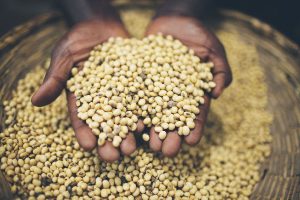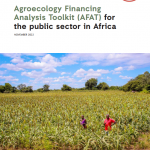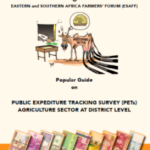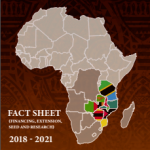Why East Africa farmer groups are opposing new seeds plan
The draft East African Community (EAC) Seed and Plant Varieties Bill is being finalized at the EAC secretariat amid stiff opposition
Arusha. Farmer groups in East Africa say they will not relent in their opposition to a proposed seed and plant varieties bill.
The draft East African Community (EAC) Seed and Plant Varieties Bill is being finalized at the EAC secretariat amid stiff opposition.
Although the EAC says if passed, it would improve access of farmers to improved seeds, non-state seed stakeholders maintain it would marginalise smallholder farmers.
“It is more leaning towards stringent commercial seed and plant variety protection (PVP) laws,” said Emmanuel Justine, a programme manager with Eastern and Southern Africa Small Scale Farmers Forum (ESAFF). This, he went on, will have massive impacts on smallholder farmers and their systems “including threats to agricultural biodiversity.”
Since 2017, the EAC has been in the process of developing harmonized seed legislation and regulations ready for tabling at the regional august House. The draft bill was adopted in December 2018 and brought to the Council of Ministers, an authoritative organ of the Community, for consideration.
Ever since, sources said, the legal document has been forwarded to the EAC Sectoral Council of Legal and Judicial Affairs for finalisation.
Once enacted, the bill will not only promote production and trade in certified seeds in the region but also open room for implementation of harmonized procedures in seed registration.
The process will ultimately see improved seed certification, phytosanitary measures on seeds, import and export documentation and plant variety protection systems.
But the farmer groups from across the EAC region who had a meeting with members of the East African Legislative Assembly (Eala) here last week, expressed their fears should the bill be passed.
“Our fears are that it will marginalise and criminalise farmers’ seed and seed systems including neglected nutritious crops and plants,” Mr Justine said. He added that ESAFF, an umbrella body of small farmer groups based in Morogoro would continue to support smallholder farmers because “they have been custodians of seed for many years.”
Their rights to produce, conserve, share and sell seed is recognised by the International Treaty on Plant Genetic Resources for Food and Agriculture (ITPGRFA). He told a meeting attended by Eala members of the Agriculture, Tourism and Natural Resources (ATN) Committee that the region was behind in protecting the rights of small farmers.
“Only Uganda has a supportive policy environment for smallholder farmer seed initiatives,” he said in his presentation at the Eala Chambers. Uganda, he said, has put in place Operational Procedures to guide the establishment of community seed banks in harmony with national policies of that country.
However, he further said, policy recognition of farmer managed seed system (FMSS) and adequate support was still lacking and heavily needed. According to Mr Justine, the proposed legislation would undermine traditional practices to freely reuse, save, exchange and sell seed locally.
The anticipated centralization of the plant variety protection system would, on the other hand, threaten and undermine national sovereignty.
It also feared that under the EAC Seed and Plant Varieties Bill only certified seed shall be traded under the law, marginalizing the traditional players in the industry. Mr. Fahari Marwa, the principal agricultural economist with the EAC secretariat that once approved the bill would be forwarded to Eala for enactment as ‘EAC Seed Act’.
He added that cooperation in seed multiplication and distribution was one of the hallmarks of the EAC Treaty in a bid to attain food and nutrition security. The day-long meeting recommended to EALA public hearings on the Seed Bills before it becomes a law and wider exemption of national sovereignty over seeds.
ends























